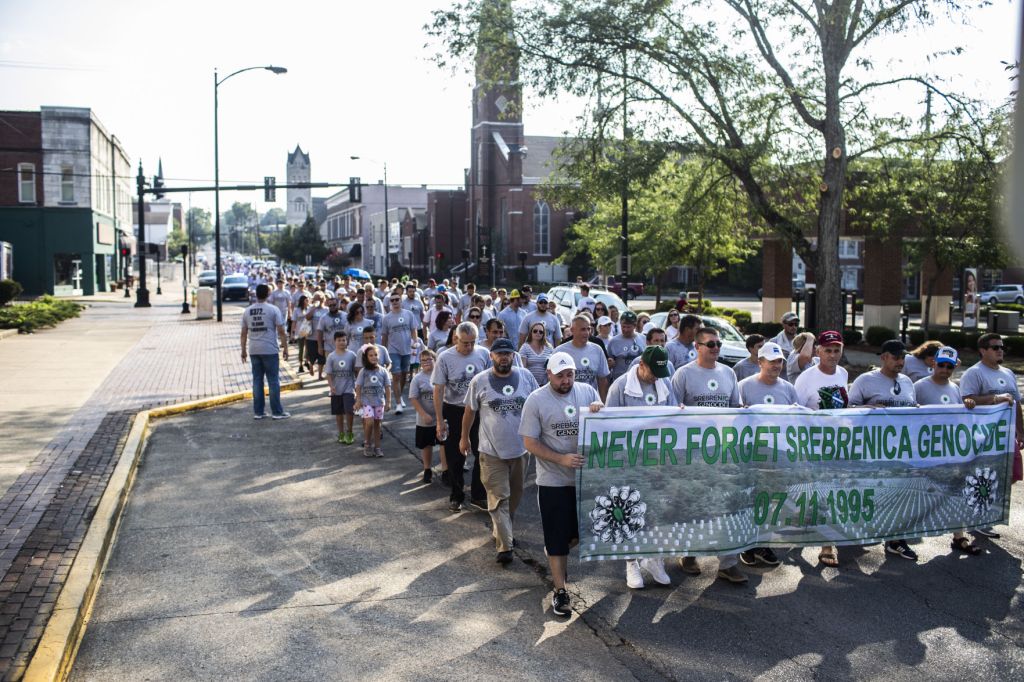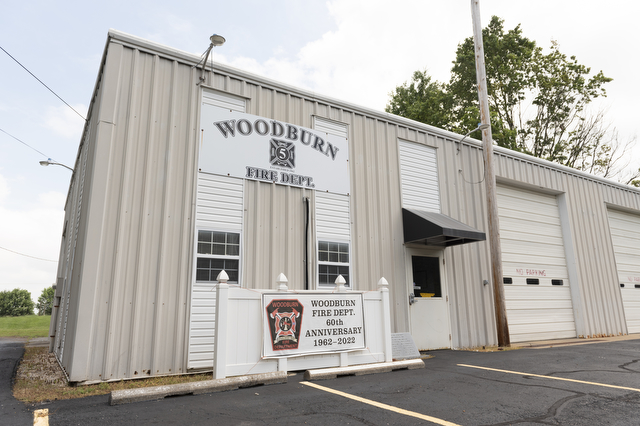Local Bosnian community will mark 24th anniversary of genocide Saturday
Published 8:00 am Monday, July 8, 2019

- Participants walk in July 2018 on State Street in remembrance of the 1995 genocide at Srebrenica. This year’s walk is scheduled for 8:30 a.m. Saturday.
It’s been almost a quarter century since more than 8,000 Bosniaks, mainly men and boys, were massacred in and around the Bosnian town of Srebrenica during the Bosnian civil war.
For Amer Salihovic and his family, this time of year is marked by the memories of that massacre.
“It’s always a time of sadness, a time of reflection,” Salihovic said, adding that it is felt by all local Bosnian families who’ve built new lives here.
On Saturday, local Bosnians will mark the 24th anniversary of the killings perpetrated by Serbian forces, which an international court has labeled as genocide.
The death toll on July 11, 1995, reached at least 8,372, making it Europe’s worst massacre since World War II.
Beginning at 8:30 a.m. at Circus Square Park, Bosnians will hold their fifth annual walk to commemorate the genocide’s victims, taking a step for each life lost. Organizers are asking walk participants to bring backpacks that will be donated to schoolchildren.
Separately, a symposium will be at 6 p.m. Thursday at the Kentucky Museum at Western Kentucky University to provide more context on the massacre and the larger conflict that surrounded it.
Following violence that first broke out in 1992 with the start of the Bosnian civil war, Serbian forces overran Srebrenica, which at the time was a United Nations safe zone.
Victims’ remains are still being identified and recovered from mass graves, with experts needing to use DNA analysis to assemble a body with bones found miles apart.
The ethnically rooted war broke out in a former republic of Yugoslavia with a multiethnic population of Bosniaks (Muslim Bosnians), Serbs and Croats. It didn’t end until a cease-fire agreement was negotiated in 1995.
But for Salihovic and his family, the lives lost are more than just history.
“I have four graves in Potocari,” Salihovic said, referring to a village in eastern Bosnia and Herzegovina, about 70 miles northeast from the country’s capital, Sarajevo. The graves belong to his grandfather and three uncles, Salihovic said.
Stories from that massacre have been passed down to Salihovic by family members. His mother was pregnant with him at the time and carrying him as she looked after his four sisters, at times making the trip to safety by bus or fleeing through the woods, Salihovic said.
Salihovic grew up with stories of miraculous reunions of family members separated by the chaos.
At one point, his brother, about 17 years old at the time, was separated from his father after falling into a river. The river carried his brother through enemy territory, Salihovic said, before he was pulled from the river by a man that could have been a foe just as easily as a friend.
“When he took him back to the camp, my uncle was there,” Salihovic said.
Salihovic describes the experience as one of the most harrowing in his father’s life. Not only did he believe he’d lost his son, “but he also had to tell my mother that that’s what happened,” Salihovic said.
A cousin, Salihovic said, still lives in Bosnia with the trauma he endured while being held in a “concentration camp.”
“He still sees the guy that beat him up in the concentration camp,” Salihovic said.
Now, 24 years later, Bosnia still hasn’t completely recovered. Good work is hard to find, and the country’s future has been cast into doubt, Salihovic said, because it’s suffering from a “brain drain” as young, educated people leave for better opportunities abroad.
“There is a lack of hope, a lack of optimism,” Salihovic said.
Now in its fifth year, Salihovic said organizers hold the commemorative walk “to keep it relevant, to keep it fresh, No. 1 in our minds, and then hopefully our neighbors’ as well.”
“It’s not just us. It’s happening every single day,” Salihovic said of violence and conflict abroad. “We’re just fortunate enough to have found a home in Bowling Green.”
– The Associated Press contributed information to this story.





